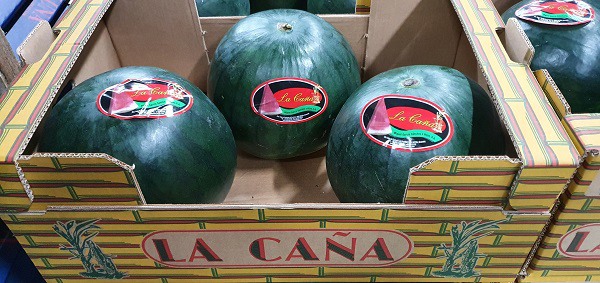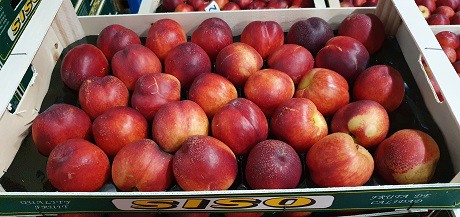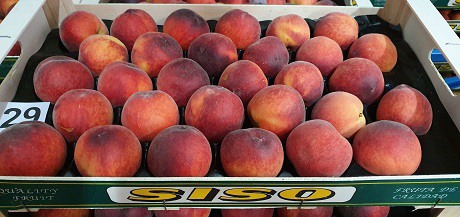“Imported cherries’ quality’s currently greatly improving,” said Erik-Jan Thur, Marni Fruit. “It’s rained a lot in Spain in recent weeks. The crops were, therefore, damaged. The cherries could only be used for the industry, not exports.” Although they improved dramatically - they taste good and have a nice, dark color - Erik-Jan has noticed the weather’s caused a shorter-than-usual season.

Marni Fruit indicates that there was an adequate supply of melons mid June
The improved quality means cherries prices returned to normal in mid-June. “They could be higher, but Turkey’s on the market again too. That’s putting a bit of pressure on prices.” This year’s apricot supplies are low, which has led to high prices. Erik-Jan expects more volume to come in during the summer. Regarding peaches and nectarines, he says demand is good, with, so far, limited Spanish availability. “That could change quickly once the products arrive from Italy and Greece. Hopefully, competition won’t heat up like it did last year. Then prices dropped to cost price, and even lower.”

Erik-Jan Thur
He reports that that’s why, in mid-June, fewer nectarines were available, but at higher prices than peaches. Erik-Jan doesn’t think his peach and nectarine suppliers’ harvest will be much lower. There was, indeed, bad weather in the production regions in Spain. But Marni’s of the opinion that the fruit was in a relatively early phase of their growth at that time. That means the damage was limited and recovery possible. Erik-Jan notices that the demand for these products is seasonal. “If it’s cold and rainy, people don’t often buy peaches, nectarines, or melons.”

In the last category, there are a lot of watermelons available from Morocco, Italy, Greece, and Spain. So there’s pressure on prices, certainly of the Moroccan product. Erik-Jan’s also seen that people prefer Spanish watermelon. These are seedless. Morocco, for example, has no seedless varieties on the market. Cantaloupes come mostly from Italy, at normal prices for the time of year. And Galias, from Spain, with reasonable prices. Here too, the increasing summer volumes will make for much lower prices.

More information
Erik-Jan Thur
Marni Fruit
Gebroken Meeldijk 52
2991 VD Barendrecht
Tel: +31 (0)180 697 996
Fax: +31 (0)180 697 990
ej@marnifruit.nl
www.marnifruit.nl
